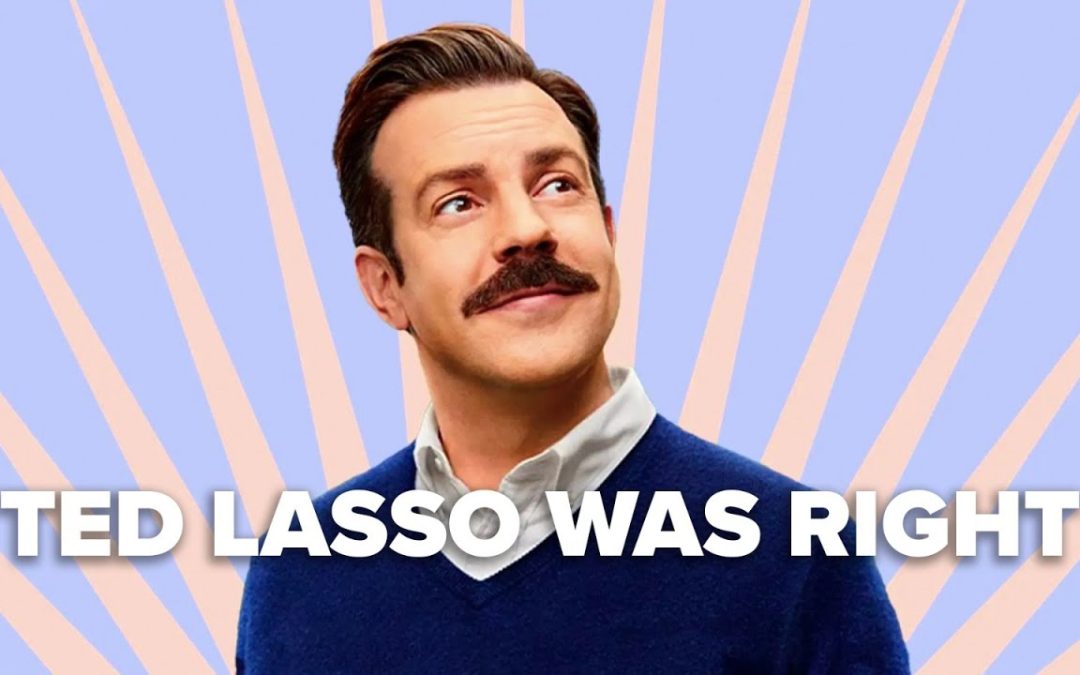As HR professionals, one of the most impactful parts of our job is coaching leaders. Whether we’re helping them navigate team dynamics, manage conflict, or build trust, we’re often in the business of helping people become better humans at work.
Many of my clients will attest to this, I am constantly bringing up Ted Lasso. Yes—that Ted Lasso. He’s a master class in emotional intelligence and people-first leadership.
Here’s why Ted Lasso is the ultimate leadership coach—and how we can bring some of that Believe attitude into work.
1. He Leads with Empathy (and a Whole Lot of Curiosity)
Ted Lasso doesn’t assume. He asks. Whether he’s chatting with a player, a rival coach, or even the team’s reluctant owner, he approaches each person with curiosity and care. His go-to question? “What’s going on with you?”—not “Why did you mess this up?”
In today’s workplaces, we need less judgment and more genuine inquiry. Ted reminds us that connection comes first—and when people feel seen, they show up more fully.
Leadership takeaway: Be curious.
2. He Assumes Good Intent (Even When It’s Hard)
Ted gets betrayed. Undermined. Ignored. And yet—he keeps showing up and assuming that those around him have good intentions. He believes people are doing the best they can.
That doesn’t mean he avoids tough conversations. But he doesn’t start with blame. He starts with trust.
Leadership takeaway: Assume good intent.
3. He Listens—Like, Really Listens
Ted’s not the loudest voice in the room. He often lets silence linger. He gives people space to talk, to think, to just be. And when they do speak, he listens
Active listening builds trust. It makes people feel heard. And when people feel heard, they’re more likely to engage, collaborate, and take ownership.
Leadership takeaway: Seek to understand, not just to respond.
4. He Builds a Culture of Psychological Safety
One of the most powerful things about Ted Lasso’s coaching style is that he creates an environment where it’s okay to mess up and to be yourself. Mistakes aren’t punished—they’re seen as learning opportunities. Vulnerability isn’t weakness—it’s strength.
From team bonding activities to personal conversations, Ted fosters trust and inclusion. And that’s when real growth happens.
Leadership takeaway: Here I am, writing a blog on Ted Lasso. Let your team be themselves. Trust them and don’t kill their spirit.
5. He Balances Positivity with Accountability
Ted’s optimism is infectious and makes me want to be a better person. But he’s not naïve. He knows when to draw boundaries, challenge people, and call them up to something greater. He doesn’t lower the bar—he raises people to meet it. He also lets others learn the lessons on their own by holding themselves accountable.
He holds people accountable with heart. Not with shame. Not with force. But with belief.
Leadership takeaway: High standards and high support go hand-in-hand. Lead with encouragement, follow through with clear expectations. Bonus – check out our blog on how you can set clear expectations.
Final Thoughts: Kindness Is Not Weakness
One of the biggest misconceptions in leadership is that being kind means being soft. Times are changing and Ted Lasso shows us that you get more bees with honey.
He shows us that the best leaders don’t know everything. I mean, had Ted ever even been to a soccer game? I don’t think so. He was successful because he had the highest EQ in the room, not IQ. He knows to listen to his team. Emotionally intelligent leadership isn’t about being everyone’s best friend—it’s about being present, intentional, and real. It’s about helping people become the best versions of themselves, not through fear or pressure, but through trust, connection, and a little bit of humor.
Because at the end of the day, great management isn’t about control—it’s about care.
So next time you’re navigating a tricky situation, managing a tough conversation, or wondering how to bring your team together… channel your inner Ted Lasso, and throw on your visor. Believe. Be a goldfish.

